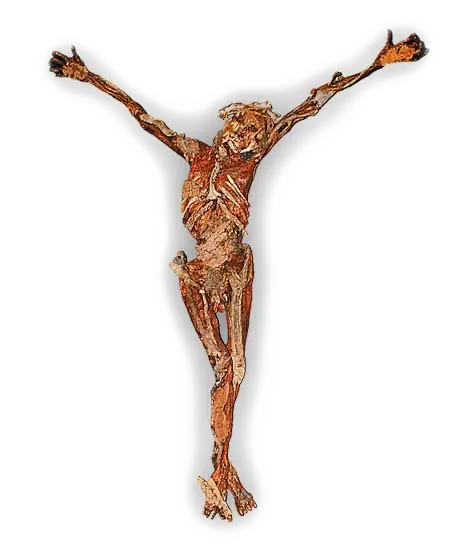Philip P. Eapen

Christian understanding of salvation is different from what other religions or traditions mean by the same term. Read on to learn what the Bible teaches about salvation.
“Salvation” refers to God’s act of saving us from our sins. The Son of God was called Jesus because He would save His people from their sins. The name means, ‘God is our Salvation.’ Therefore, we refer to Jesus as the Saviour of the World.
Christian understanding of salvation is different from what other religions or traditions mean by the same term.
Christian salvation is God’s initiative, not a human invention. By salvation, we are not referring to:
God’s gift of salvation liberates us from sin – its guilt, its power, and its consequences – through Jesus Christ. God liberates us from the power and dominion of Satan. God transfers us to His Kingdom, a kingdom of light, love and holiness. At the end of our life’s journey, God will take us away from the presence of sin, into His holy presence, to live with Him forever. Until then, He will give us everything we need as we go through life’s varied experiences. This salvation is available to all humanity.
The Bible says that all people—irrespective of their religion, color, or language or age— have fallen short of God’s standards through disobedience. We have transgressed God’s law; that is, we have done what we shouldn’t have done. On the other hand, we are guilty of sins of omission; that is, we have not done what we were required to do. Each person is responsible for his/her own sin.
What laws are we talking about? Not everyone knows about God’s laws, you might say. I’m referring to God’s laws that were revealed to His people through Moses—hundreds of commandments and regulations that governed worship, relationships, government and all other aspects of life. The most important of these laws are popularly known as the Ten Commandments in which are enshrined eternal moral principles. Even if the majority of the world population should say that they were never aware of the existence of these laws, they will not escape God’s judgment because God has written his moral law on every person’s conscience. That is like an embedded program in our innermost being. However much people try to silence God’s voice in their conscience, they don’t succeed. Therefore, the apostle Paul taught us that no one can escape God’s judgment. Everyone will be held accountable because we have all gone against the voice of our conscience.
For whenever the Gentiles [non-Jews, that is], who do not have the law [of Moses], do by nature the things required by the law, these who do not have the law are a law to themselves. They show that the work of the law is written in their hearts, as their conscience bears witness and their conflicting thoughts accuse or else defend them, on the day when God will judge the secrets of human hearts, according to my gospel through Christ Jesus.

The human race has landed itself in a terrible situation because of sin. The consequences of our sin are to be seen all around us:
This is why we need to be saved! We need to be saved from the consequences of sin, the power of sin in our lives today, and, eventually, from the very presence of sin.
When the first man and woman discovered that they had fallen from their glorious position and privileges as God’s children, they thought they could somehow help themselves out! They realized that they were naked. They felt exposed, ashamed. They were always in the nude but they had never felt naked and ashamed before. Their newfound sense of shame was an evidence of their guilt before God. The problem was much deeper than the lack of a covering. Yet, they thought that they could fix the problem by providing themselves with a covering—that too, made of leaves! Their ‘solution’ reveals a lack of understanding about their problem. It was temporary and inadequate. There is no garment on earth that can save us from God’s searching eyes that exposes our guilt!

For centuries, people have been trying one ‘skirt’ or the other to give them a sense of relief from their deep-seated sense of nakedness and guilt. We wrap ‘skirts’ called religion around us. We try to do our best to present ourselves before God without realizing how pathetic our attempts truly are. Like Adam’ and Eve’s leafy skirts, our religions—however sophisticated they may be—do not solve our fundamental problem of sin.
The answer to human misery can only be provided by God. None of our good works can ever erase the filth of sin that is already on us. The good news is that God did not abandon the human race; instead God loved us so much that He decided to save us from our sins. This divine resolve is seen in God’s act of kindness. He provided clothes made of animal skin to Adam and Eve. Yes, leather garments certainly will be worn out in time. But that’s not the point. The only “garment” that will cover our nakedness before God is that which God Himself will provide. There is a hidden cost involved: an animal had to give up its life. In the same way, God was planning to send a sinless Savior who would die in man’s place to take away his guilt and shame forever. The ‘robe’ that will help man stand before God is no earthly robe. It is the robe of righteousness that God provides.

The Bible testifies that a man called Jesus was born supernaturally to a virgin. He never committed any sin! He claimed to be the Son of God and proved it through the miracles He performed. He was divine and human at the same time. God had arranged Jesus as the perfect candidate to be ours substitute—to bear human sin and suffer punishment in our place. Through his death, God provided a way for every human to get right with God.
This initiative came from God. It was not clever human invention. Seven hundred years before the birth of Jesus, prophet Isaiah had predicted that a Saviour would die, bearing our sins, sorrows and sicknesses. Notice how the prophet mentioned this Saviour being ‘pierced’ although the crucifixion was not invented until after several centuries after this prophecy was recorded.

He was despised and rejected by men;
a man of sorrows, and acquainted with grief;
and as one from whom men hide their faces
he was despised, and we esteemed him not.
Surely he has borne our griefs
and carried our sorrows;
yet we esteemed him stricken,
smitten by God, and afflicted.
But he was pierced for our transgressions;
he was crushed for our iniquities;
upon him was the chastisement that brought us peace,
and with his wounds we are healed.
All we like sheep have gone astray;
we have turned—every one—to his own way;
and the Lord has laid on him
the iniquity of us all. - Isaiah 53:3-6
The apostle Paul wrote this about our sin and God’s solution:
There is no distinction: for all have sinned and fall short of the glory of God, and are justified by his grace as a gift, through the redemption that is in Christ Jesus, whom God put forward as a propitiation by his blood, to be received by faith. Romans 3:23-25
God’s justice demands that sinners be punished according to His law. We deserved to be punished and extinguished in the process. Yet, God allowed his righteous anger to be poured out upon Jesus.

Thus, Jesus’ death satisfied divine justice. God’s wrath has been turned away from us who believe in Jesus. This aspect of Jesus’ death is referred to as atonement. We don’t have to do anything to appease God’s wrath. The blood that Jesus shed for us serves as an acceptable propitiation in God’s sight.
Anyone who accepts Jesus’ death as a substitute for his or her own death can seek forgiveness from God. When a sinner repents, that is, turns away from sin and turns to God for forgiveness, God will certainly forgive him/her. God will wipe their slate clean of all the charges against him/her. All charges against the sinner gets dropped because Jesus paid for the sins of the world. The condition of the repentant sinner has changed. He/she is now ‘just as if he/she had never committed a single sin in his/her life.’ This is what the Bible refers to as ‘justification.’

Jesus once narrated this parable,
“Two men went up to the temple to pray, one a Pharisee and the other a tax collector. The Pharisee stood by himself and prayed: ‘God, I thank you that I am not like other people—robbers, evildoers, adulterers—or even like this tax collector. I fast twice a week and give a tenth of all I get.’

“But the tax collector stood at a distance. He would not even look up to heaven, but beat his breast and said, ‘God, have mercy on me, a sinner.’ “I tell you that this man, rather than the other, went home justified before God. For all those who exalt themselves will be humbled, and those who humble themselves will be exalted.”
We cannot earn justification or forgiveness by the good things we do. Anyone who tries to look smart before God by their own efforts (that is, the practice of religion), will find themselves rejected by God. Those who humble themselves and acknowledge their sin, coming to God just as they are, will get cleansed and forgiven. Jesus used the term “justified.” We, too, can use this term while referring to people who have said the “sinner’s prayer.”
The apostle Paul summed it up like this, in one of his letters:
“For our sake God made Jesus to be sin even though Jesus had not committed even a single sin, so that in Jesus we might become the righteousness of God.”
This is a divine transaction. Our sin was laid on Jesus; he bore the blame for everyone’s sin. On the other hand, all who accept this divine transaction through faith, get to be clothed with Jesus’ righteousness.
And again, in his letter to the Roman Christians, Paul wrote:
[God’s righteousness] will be counted to us who believe in the God who raised from the dead Jesus our Lord, who was delivered up for our trespasses and raised for our justification. Therefore, since we have been justified by faith, we have peace with God through our Lord Jesus Christ.
Through the atoning death of Jesus Christ, we can be pardoned and justified. However, there’s more to this.
The human race once belonged to God. We were his children and a treasured possession. Through sin, we became estranged from God. We chose the kingdom of darkness and hid from God’s light. People turned their back from the living God and pledged allegiance to false gods. We were lost in sin!
Through Jesus, God purchased us back to himself so that we may belong to Him and none else. He did not welcome back to His divine household as slaves but as children. That privilege once belonged just to ethnic Jews who were descendants of Abraham. Today, everyone who believes in Jesus is a child of God. Observe the following verses:
When the fullness of time had come, God sent forth his Son, born of woman, born under the law, to redeem those who were under the law, so that we might receive adoption as sons. And because you are sons, God has sent the Spirit of his Son into our hearts, crying, “Abba! Father!” So you are no longer a slave, but a son, and if a son, then an heir through God. Galatians 4:4-7
Jesus came to his own, and his own people did not receive him. But to all who did receive him, who believed in his name, he gave the right to become children of God. John 1:11-12
See what kind of love the Father has given to us, that we should be called children of God; and so we are. 1 John 3:1
Do you not know that your body is a temple of the Holy Spirit within you, whom you have from God? You are not your own, for you were bought with a price. So glorify God in your body. 1 Corinthians 6:19-20
For you know that it was not with perishable things such as silver or gold that you were redeemed from the empty way of life handed down to you from your ancestors, but with the precious blood of Christ. 1 Peter 1:18
Thus far, we have seen that God has provided salvation for all mankind through Jesus Christ. Through Jesus’ sacrificial death, God has prepared the way for our acquital, forgiveness, redemption and adoption. This is good news! If Jesus has accomplished all these for us, will all mankind be forgiven and saved? Not until we obey the message of the good news.
Obedience to the Gospel is obedience to Jesus’ call, “Follow me.” It is like setting out on a long journey or a long race. It is a journey that begins here on earth and ends in heaven. This journey or race lasts a lifetime. We call it the Christian life.
The first step in this journey is repentance. A sinner who comes to know that he and all humanity are destined to face God’s eternal wrath sets out to receive God’s mercy. He reaches the Cross of Christ where he finds the Savior who died for his sins in his place. He repents of his sins against God and man. Repentance involves a total hatred for and withdrawal from one’s sins. It also involves confession of sins to God to seek forgiveness. By believing that Jesus died for one’s sins and rose again from the dead to become Lord of lords, each sinner reaches out to God in faith to receive forgiveness.
A sinner who repents must accept water baptism, as the Lord Jesus commanded. “Repent and be baptized!” said the apostle Peter. Water baptism is a means by which we can make the death, burial and resurrection of Jesus Christ our own! Immersion in water represents death and burial. A repentant sinner who is baptized rises from the water as a new creature through faith in the risen Christ. It is a new birth. Baptism marks the beginning of our journey to experience the fullness of God’s free gift of salvation! From there, the new Christian moves on towards his final destination—his heavenly abode. He will go through several trials and temptations. This life-long journey is beautifully captured in John Bunyan’s (1628 - 1688) allegory called The Pilgrim’s Progress.
Some Christians fail to understand the importance of seeing salvation as a process that takes a lifetime. As soon as a sinner believes in Christ and is baptized, they announce that they are “saved.” They overlook Christ’s words, He who endures till the end will be saved. The story of Exodus in the Hebrew Bible reveals the many stages of God’s salvation. Liberation from sin does not automatically place us in Paradise. We need to remain in the liberty that Christ gives us freely. We need to keep following Christ till the end of our life.
Further reading:
How can you know for sure that God has forgiven your sins and accepted you into His household as His child? Read about Assurance of Salvation.
It is vitally important now to learn more about the initial steps a new Christian has to take in this life-long journey. I have explained repentance, water baptism, and other vital steps in greater detail. Read about the initial steps now.
Philip Eapen, an environmental scientist by training, devoted his life to proclaim the gospel of Jesus Christ ever since he realized that the world needs Jesus Christ more than anyone or anything else. Apart from sharing the good news of Jesus Christ, Philip teaches Christians in order to equip them for service. He is supported by donations from readers. Philip is married to Dr. Jessimol and they are blessed with three sons and a daughter.
Date: May 2, 2020